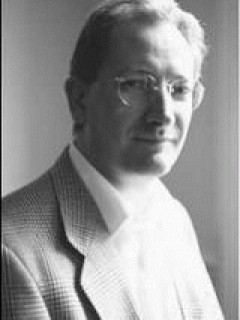The main criticisms? A feeling that, though it is well organised, the conference's format, the podium, and its classic style one that seems to talk at delegates rather than involve them in the process can be intimidating.
The feedback this year comes from Bob Dance of SGA Research International, a veteran of such conferences, and Matt Lynch of Quadrangle Consulting, a first timer, with Oliver Murphy asking their impressions of the previous three days.
A surprising winner for Lynch was Peter Kenyon, CEO of Manchester United. "It was one of the clearest speeches I've ever heard in terms of someone explaining their brand proposition and their strategy," he said. "You could say that it was worth the entrance price alone". The presentation by Added Value and Levi Strauss Europe, entitled 'Inspiring the Organisation to Act' awarded 'Best Paper' also elicited praise for its slickness and lack of written notes.
Plaudits, too, for Lord Hollick's keynote, discussing the need for research to be the business information integrator, and for Ginny Valentine's 'Repositioning Research'. Dance, meanwhile, picked the 'Different People Different Strokes' session on Thursday as his favourite, "although there were two very good papers and one that was just not well thought through at all," he said.
The problem seems to be that a paper can work well as a synopsis topic, but the end result doesn't necessarily match up. He pointed, too, to the Friday morning sessions as being particularly pertinent. "They also got better and better as the morning wore on," he said.
This, said Lynch, "would be the ideal sort of session for breaking out and talking about topics further, discussing the implications and so on. In a way it's a shame when it just sort of winds up and you move on to another subject."
So had there been any attempts to tweak the product offering this year? Well, the main one a disk with the papers on it got thumbs down from Dance. "I was very disappointed to see no book this year," he said. "I mean, I've got a laptop here, but I don't happen to have a CD Rom drive on it so I can't access it until I get back to the office. I guess it's a cost-cutting exercise, but you don't see the fees going down."
There were mutterings from exhibitors this year, too, about falling attendances and poor positioning. Yet many found themselves caught in a Catch 22 situation: the absence of a stand from a big company would be duly noted, yet a presence is often hard to justify.
So what does this mean for the future? "Well, we'll be here next year but we'll think much more carefully about how we spend our time and money," said Dance. "We (RI) would put more emphasis on meeting people, on sharing ideas aspects where a stand is very useful."
The formal large-scale wining and dining of clients, and the big agency junkets of old, have transformed into much more informal affairs less stressful and less painful to the bank balance.
The conference also needs to review how it debates the industry itself, said Lynch. "There were very detailed discussions about should the MRS reposition or align itself with other bodies, whether it should have a voice. It was very much about the industry in isolation rather than how it could be connected with other things."
Does this, in actual fact, encapsulate the Conference's dilemma? Are researchers more interested in the business of their clients and where research fits in than on methodology pure and simple? Or are we, as one delegate said at the time, just plain 'conferenced out'?


